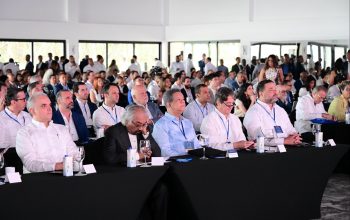news
GFDD and FUNGLODE Gives Keynote Address at UN ECOSOC International Tax Cooperation Meeting
May 29, 2013
On May 28, GFDD and its sister organization FUNGLODE were in attendance of the Expert Group Meeting on the Taxation of the Extractive Industry organized by the Financing for Development Office of UN-DESA. The meeting at the ECOSOC chamber of the United Nations Headquarters brought together crème de la crème of national tax authorities with expertise in the extractive industry (Norway) and with the need for scaling up such expertise
(Angola, Azerbaijan, Brazil, Chile, Columbia, East-Timor, Ghana, Kazakhstan, Malaysia, Mozambique), experts from international (financial) organizations (ATAF, CIAT, EITI, IMF, OECD, UNDP, UNCTAD, World Bank), as well as representatives from non-governmental organizations (Action Aid, Christian Aid, Global Financial Integrity, Revenue Watch, Tax Justice Network) and the private sector (Shell, Chevron).
The purpose of the event was to contribute to advancing the work of
the UN Committee of Experts on International Cooperation in Tax Matters through interactive discussions among relevant stakeholders on key issues and emerging challenges, particularly for developing countries, in the field of extractive industries’ taxation.
GFDD and FUNGLODE Gives Keynote Address at UN ECOSOC International Tax Cooperation
Meeting
One of the highlight of this high level meeting was the keynote address given by economist Germania Montas Yapur, GFDD and FUNGLODE collaborator and former deputy of the General Directorate of Internal Revenue of the Dominican
Republic. As it was suggested, Ms. Montas spoke about “ Taxation in the Mining Industry: notes on a Design to Facilitate its Application’’, introducing the Dominican Republic experience as a resource rich country seeking to mobilize resources for the national development.
The focal point of Ms. Montas’ presentation was the importance of signing contracts between tax authorities and mining
companies on exchange of information for tax purposes, with the ultimate fiscal transparency of mining contractors. In this regard, noted the distinguished guest, the IMF’s Code of Good Practices on Fiscal Transparency and the civil society’s Extractive Industries Transparency Initiative provide the most efficient guiding principles and standards on transparency of payments and revenues from the extractive industries. In the conclusion of her enchanting speech, the
senior economist cited, “We share the view that the prudent use of natural resource richness should be an important driving force for the sustainable economic growth that contributes to the sustainable development and poverty reduction. However, if this richness is not properly managed, it can produce negative economic and social impacts.” As of a great success of her presentation, the distinguished audience gestured with applause.
After the opening
remarks made by Alexander Trepelkov, Director, Financing for Development Office, UN-DESA, the first panel discussion began. Under the overall theme of the impact of natural resource riches on national and international tax policy and administration, the panellists discussed advantages and disadvantages of being a resource rich country and how natural resources impact on the design and administration of double tax treaties.
The second panel discussion dealt with the link
between transfer pricing and the taxation of extractive industries, or, in other words, the impact of transfer pricing in extractive industries on a country’s tax revenues. The discussants of the panel mainly focused on transfer pricing issues for minerals, petroleum and natural gas.
During the third and last panel of the Meeting, the tax experts tried to examine lessons learned in building capacity in resource taxation policy and administration, with the goal
to find commonalities in the approaches and ways to align relevant efforts of the private sector, governments and civil society.
The given Expert Group Meeting on the Taxation of the Extractive Industry was held in the run up to the Special Meeting of ECOSOC on International Cooperation in Tax Matters, which took place on 29 May in the UN HQ.
The centerpiece of that meeting, also attended by GFDD and FUNGLODE, was the official launch of the UN Practical
Manual on Transfer Pricing for Developing Countries, as well as a panel discussion on “Transfer Pricing Challenges for Developing Countries”. The meeting also featured a panel discussion on “Capacity Development in Tax Matters”, with the participation of major international organizations active in the tax area. Additionally, the interactive discussion was held on “Current Issues in Countering International Tax Avoidance and Tax
Evasion”, which included the discussion of issues of tax base erosion and profit shifting.
Presentations:
English
Spanish
Powerpoint
Related Links:
http://www.un.org/esa/ffd/







